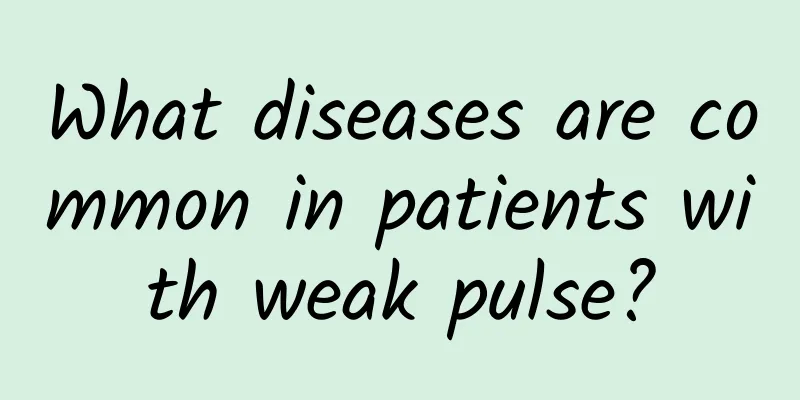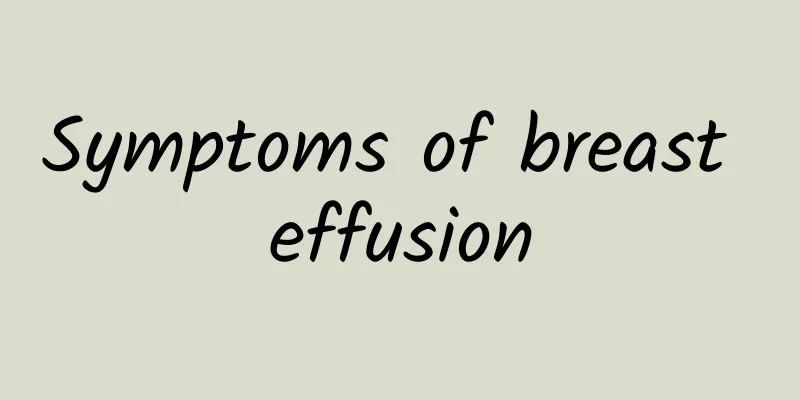What can't you eat when taking Chinese medicine?

|
Traditional Chinese medicine is a very common choice for treating diseases. The choice of traditional Chinese medicine has appeared very early. Traditional Chinese medicine is very helpful in treating any disease. However, it should be noted that the choice of such medicine also needs to be made correctly. It cannot be chosen randomly. In addition, you also need to understand what you cannot eat when taking traditional Chinese medicine, otherwise it will cause great harm to your health. What can't be eaten when taking Chinese medicine? Many people don't know this question, so when choosing Chinese medicine, you can also consult. Experts also have some introductions on such issues so that patients can understand. What not to eat when taking Chinese medicine: What white radish can't be eaten when taking Chinese medicine People who are taking warm tonic medicine should not eat white radish when drinking Chinese medicine. White radish is a "qi-moving and phlegm-resolving medicine" that consumes energy. Therefore, it should not be taken together with tonic medicines, as this may easily reduce their efficacy. Other unsuitable foods include Chinese cabbage and bamboo shoots. It is best not to eat white radish when taking ginseng. Lai Rongnian said that the seeds of white radish, also known as "radish", can regulate qi and reduce gas, and are used by traditional Chinese medicine to eliminate intestinal flatulence. Sometimes it is used when one has eaten too much tonic food or has qi stagnation. Therefore, it is not suitable to be eaten with ginseng that replenishes qi, especially for people who must eat Korean ginseng, which is a red ginseng and a warm tonic. This means that the patient already has a cold constitution and needs to use tonic medicine. It is not suitable for taking medicines that consume qi or ingredients such as white radish. What peppers can't be eaten when taking Chinese medicine People who are taking cold medicines should not eat chili peppers while drinking Chinese medicine. Both Chinese and Western medicine believe that when you are sick and taking medicine, you should eat a light diet and try to avoid spicy and irritating foods, such as curry, pepper, chili, alcohol, etc. Eating spicy and stimulating foods will increase heat symptoms, thus offsetting the efficacy of heat-clearing and blood-cooling drugs. If you are taking bitter and cold medicines such as rhubarb, coptis chinensis, scutellaria baicalensis, or cold medicines such as peony bark, phellodendron, honeysuckle, platycodon, mulberry leaves, forsythia, etc., you should not eat spicy, hot, dry and greasy foods such as onions, garlic, chili peppers, sesame oil chicken, bak kut teh, ginger duck or mutton hotpot, so as not to affect the medicinal properties of the original Chinese medicines. What ice can't you eat when taking Chinese medicine? Everyone, especially those who are taking Chinese medicine with warm properties, should not eat ice while taking the medicine. Traditional Chinese medicine believes that the human body must have balanced qi and blood to function properly, and eating ice can easily damage the spleen and stomach functions. Under normal circumstances, the enzymes in the stomach must be at an appropriate body temperature to function effectively. Eating too much cold food will lower the temperature of the stomach, which is not conducive to the decomposition of enzymes and the inability to digest and absorb the essence of grains, thus leading to poor metabolism. Especially when you need to take warm Chinese medicine to treat an illness, you should avoid eating raw or cold fruits and cold foods, otherwise the medicine will not be able to fully exert its effectiveness. What kind of glutinous rice can't be eaten when taking Chinese medicine People who are taking spleen and stomach strengthening medicine should not eat glutinous rice. Foods such as beans, meat, and glutinous rice are difficult to digest. People who are taking spleen and stomach strengthening medicines are advised to avoid them to avoid increasing the burden on the gastrointestinal tract and affecting the patient's recovery. For elderly people whose gastrointestinal function has declined, eating too much of this kind of food will often cause the gastrointestinal tract to be overloaded. What kind of mango can't be eaten when taking Chinese medicine People who are allergic or are treating skin diseases or taking Chinese medicine should not eat mangoes. Reason: From the perspective of traditional Chinese medicine, mango is considered an "irritant", which means that for people with allergies such as asthma and atopic dermatitis, eating mango can easily cause the disease to flare up. Patients who are taking medication for skin diseases should also avoid eating foods such as mangoes, lychees, peanuts, and seafood. Through the above introduction, we have a good understanding of what not to eat when taking Chinese medicine. Women should also pay attention when taking Chinese medicine. Generally, they cannot drink it during menstruation, as this will have some effects on the female body. This is also necessary. At the same time, when taking Chinese medicine, you must persist in using it to get good results. |
<<: Superficial antral gastritis
>>: The difference between Chinese yam and tuckahoe
Recommend
Symptoms of severe cerebral palsy
Severe cerebral palsy is a very serious condition...
How to treat skin blisters
Blisters are actually herpes that are higher than...
What happens if rheumatism becomes serious?
Under normal circumstances, human joints are very...
Is it normal for the fetus to move 8 times an hour?
In the late pregnancy, it is normal for the fetus...
What is the difference between melanoma and mole?
Melanoma and mole are similar in appearance, but ...
The efficacy of Lubian Pills
Deer Whip Pills are a very common medicine in dai...
Common knowledge on prevention and treatment of H7N9 avian influenza
H7N9 is avian influenza, but it can also threaten...
Is there any impact if the coccyx is crooked?
The human coccyx is a functionally degenerate str...
The efficacy of Panax notoginseng
Panax notoginseng, also known as Tianqi, is a pea...
Symptoms of Schizotypal Disorder
Split personality is a type of mental personality...
How to scrape your arm
Gua Sha is a well-known Chinese medicine health c...
Traditional Chinese medicine for gout
Gout is a disease that can cause great pain to pa...
Are there any side effects of taking too much oxygen?
The world we live in cannot exist without oxygen,...
Why do my knees feel numb?
Many elderly people always feel soreness in their...
Sodium aescinate injection
Sodium aescin injection is ginsenoside acetate ob...









